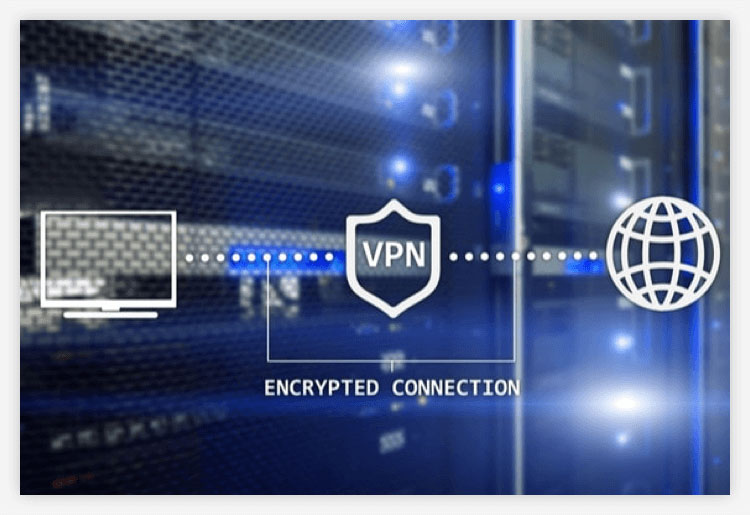Not all VPN services have your convenience, safety, and security in mind when they design their products, though. Even the best VPN services won’t always provide you with the best quality service and uninterrupted protection all the time. So, how do you know if they are protected when they need to be?
VPN performance testing is the only way to determine whether or not your VPN service is providing the kind of defenses it claims to be. These are some of the most reliable ways to check your current service for dependability, and what to do if it doesn’t make the grade.
How to Test a VPN
Testing a VPN isn’t difficult, and there are several free online services you can use to this end. Each service may test different aspects of the VPN service, but most will provide you with the same important information. In addition to testing for security features such as DNS conversions, VPN service testing can be done to determine how fast the VPN is working, what kind of download speeds you can expect, and other useful information. Since these are the factors that a user will consider when comparing different VPN services, this is all relevant information to have on hand before signing up for a particular service or when considering whether and which service to switch over to.
Here are some of the more important VPN tests to run and how to do it in simple terms, so anyone can get the most out of their VPNs or know when to make the switch.
Testing VPN Speed and Download Speed
If you’re using your VPN for file transferring, speed is of the utmost importance. Of course, different factors will contribute to the speed of a VPN. How far away from the nearest ISP server you are, along with how far the nearest VPN server is, what type of protocol you’re using (PPTP, L2TP, etc.), and even what type of device you’re using to connect with all play a role in the file transfer speed. VPN quality will be the biggest factor of all though, and how fast you can transfer a file tells you the quality of the service you’re getting, so check for VPN speed first. Keep in mind that most VPN providers, such as ExpressVPN and NordVPN, offer free speed test to their users. Here’s the process:
-
Check your internet speed before you connect to the VPN (upload and download times) to give yourself a good idea of how fast your regular connection is. If you have speed issues with the regular connection, this is not a VPN issue but one that needs to be dealt with separately.
-
Shut down other applications, run a speedtest, and record the results.
-
It’s a good idea to run the test a few times to give yourself an accurate reading.
-
Next, run a VPN speed test. Open your VPN service, and visit a website using a private window. Then run the speedtest mentioned above.
Compare the figures to see if your VPN is slowing down your traffic in either direction. You can also use sites like Speedofme or TestMy. These various tests will be able to tell you the general bandwidth speed along with how fast your download and upload speeds are both with and without your VPN server.
Testing for a DNS Leak
The Domain Name System test is important because this feature is what cloaks your URLs from anyone legally or illegally eavesdropping on your internet usage conversation. Ideally, your VPN should convert any URL into a numerical IP address. When a leak occurs, your IP address’ location and ISP are visible. Why is this bad? Because anyone denying you access because of geographical location or other similar restrictions will see where you are and not let you access the site/material you’re attempting to gain access to. That defeats the purpose of a VPN in the first place.
Running a DNS leak test is easy. Just go to a VPN server located outside of your country (this makes it easier to see if the DNS is leaking), and try visiting one of these sites:
Perfect Privacy shows you the details of your IP, ISP, and country of origin, clearly displaying whether or not your VPN is working.
This is really neat. It shows you in plain and simple format exactly what others who are collecting your IP data can see including ISP's location, IP address, which browser you're using currently, screen info, plugins used, and other creepy information that you don't want anyone accessing. Of course, IPLeak will also show you whether or not your VPN is leaking DNS information.
Keep in mind that the DNS leak will not show your IP address. Rather, it displays the IP address of your ISP. Once this is known, however, it’s easy to trace things back to you, so it’s still a major security breach. This is also why it’s important to run an additional IP leak test to see if your actual IP is being leaked, as well. We’ll talk about that one next.
Testing for IP Leaks
IP leaks are a big problem that most VPNs don't address. Even VPNs that do protect you when active won't always have the same protection while reconnecting. This means that unfortunately, even services that promise a kill switch won’t always block traffic when the VPN is down, revealing your IP address. Test this issue by performing the following steps:
-
Disconnect your internet while the VPN is running.
-
Reconnect, and run a rapid fire test sequence using a site like Perfect Privacy mentioned above or IPV6Test. Do this easily by opening several tabs (10 or more) within the testing windows. Then, refresh each of these pages immediately when you reconnect. Check each of the test page’s results to see if any of them show your IP address. If they do, this means you have a leak.
What to do if Your VPN Service Fails the Test
Didn’t make the cut? If your current VPN service failed some of these tests, it’s actually a good thing. Better for you to know that you aren’t being protected and act accordingly than to continue using an unsecure service with the assumption that you’re being safeguarded.
Now that you know your connections are unsecure, you can do two things:
-
Contact your service provider, and try to work out the problem(s) with them. This is not likely to happen however since many services are aware of their inadequacies and are just hoping you, the customer, won’t discover them. Confronting them will not make a difference at the end of the day.
-
Alternatively, you can opt for a more reliable VPN service that WILL cover you securely. Here’s a list of dependable VPNs that won’t leave you unsecured whether you’ve lost connection, are surfing internationally, or using your VPN for anything else.
Stay protected while you surf with a little proactive testing and some smart decision making today.








